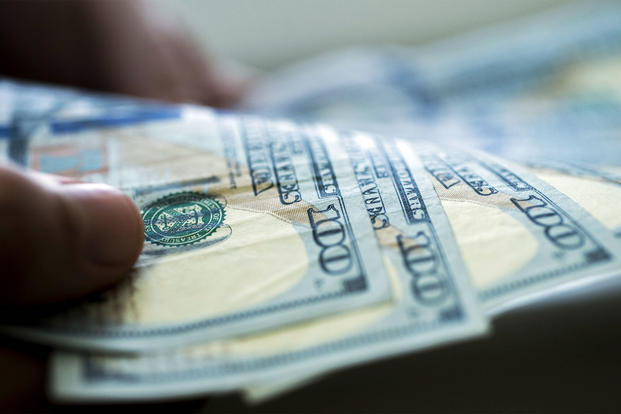Military pay deposits for thousands of troops who typically receive their checks several days early through a handful of banking institutions were delayed after the office responsible for processing that money was forced to hold the funds.
Service members will receive their mid-month pay by Dec. 15, the official military pay date, officials with Defense Finance and Accounting Service (DFAS) said on their Facebook page.
In a normal pay period, DFAS calculates pay amounts and sends that information to the banks and credit unions ahead of the actual payday. Doing so allows the financial institutions to be ready to make payment, and that's how many military-friendly banks and credit unions are willing to credit military pay before it has actually arrived.
Related: Your Military Paycheck Will Be Smaller in January. Here's Why
But a delay on Capitol Hill to the law that sets the federal budget meant money to keep the government open, including the cash that funds military pay, was delayed. Instead, lawmakers passed what's known as a "continuing resolution," a stop-gap measure that temporarily funds the government. That bill, which only funds the government through Friday, was not signed by Pres. Donald Trump until the night of Dec. 11, too late for DFAS to send the funds information to the banks for early release.
Now a second continuing resolution is on the table to extend funding past Friday. If that bill does not pass or it expires before a final budget for 2021 can be passed, the Dec. 31 paycheck could be delayed.
Delays to paychecks are a good reminder as to why it's important for military families to understand the federal budget process -- and why it's important to have an emergency fund on hand.
Related: How to Set-Up an Emergency Fund
Military finance experts advise that you should have three to six months expenses in an emergency fund. That can be a daunting goal, so start small. The easiest way to build an emergency fund is to have a small amount transferred to a separate savings account each payday, using an allotment or automatic transfer.














